-
Posts
520 -
Joined
-
Last visited
Content Type
Profiles
Forums
Downloads
Posts posted by ASEAN NOW
-
-

Foodpanda, a leader in the food delivery market, has announced that it has achieved countrywide coverage, making it the first and only operator to transport meals to all 18 provinces in Laos.
foodpanda was founded in 2019 and is guided by a hyperlocalized approach based on a thorough understanding of its customers and business partners. foodpanda offers riders the opportunity to earn money while also assisting its restaurant and retail partners in growing their online businesses and providing consumers with a convenient delivery service. The foodpanda platform has provided extra revenue options for local eateries, grocery stores, and riders all throughout the country.
Mrs. Thanyalat Chalernsouk, foodpanda's Managing Director and Co-Founder (Laos)
“As a pioneer in the food delivery sector in Laos, we've observed the remarkable expansion of the food delivery industry over the past two years,” said, who has been running foodpanda Laos since its inception. With our statewide coverage in all 18 provinces, we've watched thousands of companies flourish and thousands of riders earn a living through the foodpanda platform. Today, we're very delighted to provide these opportunities to many thousands of vendors and riders across Laos.”
“By expanding our reach countrywide, foodpanda helps small stores in every province earn more and maintain a better digital presence to keep up with changing consumer needs, creating a sustainable ecosystem even outside of the big cities. As more people turn to delivery for their food and other necessities, there are more options for riders to make money on the platform. Businesses must continue to adapt and innovate as we work together to transition to a new normal, and foodpanda is committed to growing our services to meet the requirements of our community in Laos,” she added.
In August 2021, in addition to the online food delivery that foodpanda has been providing in Laos, the firm also launched pandamart, which delivers groceries and daily essentials in 25 minutes, with hopes to expand to major provinces in the next years.
In honor of the national milestone, foodpanda is starting a marketing campaign where customers can get exceptional deals from 11 a.m. to 5 p.m. with the “EVERYWHERE” coupon, which offers 20% off on orders of at least LAK40,000 until October 31, 2021.
With this campaign, foodpanda expresses its gratitude to its customers for their support over the last two years, as well as to its partner restaurants and devoted riders who have provided the finest service possible to our customers.
-
The United States has contributed over $100,000 in food and sanitary kits to the Provincial Emergency Operations Committees in the provinces of Khammouane and Savannakhet.
The supplies were delivered on September 28 and were supported by the United States Agency for International Development (USAID) through Save the Children in Laos. They will be supplied to quarantine stations in the two provinces to assist returning migrants.Laos now has a high occupancy rate in quarantine centers, with roughly 7,500 persons incarcerated, nearly half of them are women. People in quarantine centers will have food, sanitation, and hygiene materials thanks to a contribution from USAID. A reusable mask, soap, hand sanitizer, and other hygiene materials, as well as canned food and drinking water, will be distributed to each participant.
Dr. Peter M. Haymond, the US Ambassador to Laos, complimented the Lao government on its successful efforts to protect the public against COVID-19, and highlighted the expanding US-Lao Comprehensive Partnership, which is celebrating its fifth anniversary this year.
Ambassador Haymond commented, "We are proud of this timely donation, which will assist quarantine centers in providing crucial hygiene and food supplies to migrant returnees during this tough period."
“The United States will continue to work with Laos to address COVID-19's effects on health, the economy, and education, all of which will assist Laos in recovering from the pandemic.”
This is one of numerous donations made by the US to Laos to help offset the effects of COVID-19. The United States has donated about USD 10 million in aid to the Lao government in the fight against COVID-19 from the beginning of the pandemic.
As part of US President Biden's attempts to halt the pandemic around the world, the US gave more than one million doses of the Johnson & Johnson vaccine to Laos in July 2021.
Prior USAID aid helped Laos train frontline workers, nurses, and doctors, provide medical and laboratory equipment, restore schools safely, and allow children across Lao PDR to continue learning.USAID collaborates closely with the Lao government on a variety of programs aimed at improving health, nutrition, water, sanitation, and hygiene, facilitating trade and investment, strengthening the rule of law, mitigating the impact of COVID-19, strengthening the education system, and combating human trafficking in Laos.
-

For much of the year, Cambodian cities have been restricted, but that could change as the government examines when to reopen the nation to foreign tourists and how long it can withstand the economic and social costs of forcing businesses to close.
The government shut down schools across the country in March and put a moratorium on movies, galleries, massage parlors, gyms, clubs, and museums. It outlawed eating in restaurants and cafes, as well as suspending alcohol sales in curfew zones.
The safeguards failed to prevent a lockdown in Phnom Penh in April and May, and since then, the forced closures of bars, gyms, karaoke clubs, and other businesses have been prolonged every two weeks. In July, bars were added to the list, along with an alcohol sales restriction. Restaurants were temporarily closed but reopened after public outrage if they could maintain social distance and a limit of 15 customers at any given time.
The country is already on its way to a three-day holiday to commemorate the Pchum Ben celebration. People will be unable to pay respects to their ancestors at temples after the government instructed them to stay away due to concerns about the Coronavirus. Many people believe it is time to lift the newest city limits, which are set to expire on the last day of the Pchum Ben vacation, and allow companies to prepare for the return of foreigners.
Thailand, which is considering reopening spas, movies, and museums, as well as lowering Bangkok's curfew by an hour, might teach Cambodia a lesson. From the beginning of next month, the Thai capital will be available to foreign visitors, according to the government. “The news we heard from Bangkok is quite encouraging.
Thailand recognizes that if no steps are done to restart the economy, the country's important organ will be severely damaged,” said Sothea Sambath, head of the Cambodia Business Council Association in Thailand.
In terms of vaccination, Cambodia is much ahead of its neighbor in terms of achieving Covid-19 herd immunity. According to the Reuters Coronavirus Tracker, Thailand has fully immunized 33% of its population, while Cambodia has given 73 percent of its citizens two injections.
After a vaccination drive for under-18s, schools in the Kingdom have reopened. This could have sparked a comeback of cases, which are approaching their July highs, despite the fact that cases in Thailand have declined substantially since peaking in August.
In a regional economic analysis released this week, the World Bank stated, "Despite rapid vaccination progress, risks of a protracted epidemic and further disruptions remain considerable, given sustained high numbers of illnesses and deaths."
The expense of Covid restrictions was also mentioned. “Disruptions to economic activity as a result of strict measures to contain the outbreak have resulted in job losses or reduced working hours, lowering household incomes,” the bank added. In March, only 69 percent of households' main earners were employed, down 13 percentage points from pre-pandemic levels, according to a poll.
In March, about 45 percent of households reported having a lower income than they did before the infection. While the Coronavirus may be here to stay for the foreseeable future, Sambath believes the country must now learn to adapt to the new normal.
“To get the economy back on track, we should cut the quarantine period for vaccinated visitors, tourists, and businesses to seven days and begin reopening leisure places such as movie theaters, spas, and food and beverage shops. I'm afraid that if we don't make these decisions, we'll face a worse collapse in the future, and it will take years for the country to recover,” he warned.
Some cities aren't expected to start next week. After a rise in the Delta variant, Siem Reap was placed under lockdown, and huge portions of the province were declared red zones. Since the lockdown began on September 17, the province has reported more than 200 Coronavirus cases every day.
Vaccination, according to World Health Organization Cambodia Representative Dr Li Ailan, is not enough protection even if big towns lift restrictions. She advises individuals to keep wearing masks, washing their hands frequently, staying 1.5 meters apart, avoiding cramped locations, avoiding crowds, and not touching others.
-

“If people continue to breach the health measures of three dos and three don'ts and cause significant diseases in the community, I will ask the Prime Minister to reinstate the red zone.” The Governor of Siem Reap Province, Tea Seiha, stated.
From September 30, 2021, the Siem Reap Provincial Administration has decided to end the designation of "Red Zone" and "Yellow Ripe Area" in Siem Reap Province.Seiha posted his experience on his Facebook page, which everyone should remember for Siem Reap city and some districts of Siem Reap province that were in the red and yellow zones.
The problems and risks of Covid-19 infection, according to Seiha, affect people from all walks of life who are directly affected in this closed region, including job loss, loss of family income, shortage of food, and utilities.
“My goals to authorities at all levels are only two,” he continued. 1. How to protect your people from Covid-19 infections, cut off the source of infection, protect your life, and avoid losing family members to the disease; 2. How to restore Siem Reap to its original state, with a large number of national and international tourists in the area, allowing people to work and earn money to support their livelihood.
The governor of Siem Reap province added that it is unfortunate that in the past, a small number of people did not follow the instructions of the Royal Government, the Ministry of Health, and the provincial authorities, and who were negligent, took advantage of the opportunity to profit, infecting people in the community.
-

The Republic of Korea's government has pledged to assist the Ministry of Health and the World Food Programme (WFP) in continuing to provide food to returning migrants who are subject to the required Covid-19 quarantine.
The Republic of Korea's Ministry of Foreign Affairs has allocated USD 200,000 in humanitarian aid to the Lao People's Democratic Republic's reaction to Covid-19. WFP will be able to continue providing food assistance to migrant workers in 18 quarantine centers throughout seven provinces in Laos thanks to this donation.
Over 5,600 returning migrant workers will receive three daily healthy meals from WFP and its implementing partners, the Swiss Red Cross, the Lao Red Cross, and World Vision International.
“Although the number of returning migrant workers has been slowly decreasing since the middle of August, the high number of COVID-19 cases in the countries surrounding Lao PDR remains a threat, while we work hard to contain the spread within the country,” says the statement. Our quarantine centers have proven to be critical in keeping us all safe while allowing all of our folks to return home. Dr. Bounfeng Phoummalaysith, Minister of Health, remarked, "We are grateful to the Korean government for this essential support."
In June 2020, the World Food Programme (WFP) began providing food aid in Covid-19 quarantine centers. Since early September, the charity has been feeding around 1,800 individuals each day in primary, long-term quarantine centers.
The provision of daily meals to returning migrant workers in these places helps returnees finish their quarantine periods without having to worry about finding alternate food sources. The assistance also aids in the maintenance of their health and well-being, as well as decreasing the financial strain on them and their families.
“The assistance is a follow-up to the Foreign Ministers' Meeting between the Republic of Korea and the Lao People's Democratic Republic a month ago in the midst of the pandemic, as well as the third round of the Republic of Korea's humanitarian assistance to the Lao People's Democratic Republic since the pandemic began last year, demonstrating both countries' willingness to overcome this hardship together. I really hope that this assistance would assist us in getting through these difficult times,” said Moohong Im, Ambassador of the Republic of Korea to the Lao People's Democratic Republic.
The Korean government has been working closely with the Laotian government to improve Laos' Covid-19 testing capacity, including walk-through booths, test kits, and other medical equipment. It has also worked with WFP on a local and global level, including a recent donation of 1,320 metric tons of rice to the Lao government in June 2021 for emergency food supplies in disasters.
“It's fantastic that more and more donors are realizing how critical it is to keep quarantine centers open. While national authorities do their best to keep the country safe, the World Food Programme sees it as our honorable duty to continue supporting quarantine provisions through generous donations and excellent implementation partners. We've given over 1.8 million meals to over 70,000 people since June 2020. We are getting closer to leaving this pandemic behind by isolating in humane settings everyone who is carrying the virus into the country,” stated WFP Country Director and Representative Jan Delbaere.
-

The Sustainable Change Achieved through Linking Improved Nutrition and Governance (SCALING) project in Northern Laos aims to improve food and nutrition security in 420 villages across 14 districts in the provinces of Huaphanh, Luang Namtha, Luang Prabang, and Phongsaly, with a special focus on adolescent girls, pregnant and lactating women, and children under the age of five.
Ms. Ien is Phunoi and 21 years old. She lives with her husband's family of five people, including her two children, in Ngapoung village, Phongsaly district. Their major business is collecting and selling tea leaves. “I gave my first child rice and powdered milk when he was three months old because gathering tea leaves takes a long time. The facilitator from the EU-funded SCALING project, on the other hand, described what pregnant women and their newborns should do. I've now had a second child, who is nine months old. I'll continue to breastfeed him while also providing him with other foods. I notice he's doing well and is in fantastic health.”
Did you know that nursing (colostrum) within the first hour of a baby's life protects them from infections and saves their lives?
Breastfeeding is a natural preventative activity and protective barrier for both infants and mothers against many infectious and non-communicable diseases. Indeed, it lowers the incidence of diarrhoea, respiratory disorders, middle ear infections, leukemia, and asthma in children, as well as contributing to the immune system's strengthening through antibodies in breast milk. It also lowers the mother's chance of breast cancer.
Breastfeeding is beneficial to a child's long-term health and saves money for health-care providers and families. Breastfeeding promotes brain development and school attendance, and it's linked to greater adult earnings.
Breast milk substitutes are being marketed, posing a danger to this natural and important practice. Large manufacturing food firms' principal purpose is to advertise their goods, no matter what it takes. In other words, infant formula producers have a responsibility to increase sales of baby formula and persuade new moms of the nutritional benefits of their product over breastfeeding. Their profit-driven mission has negative health consequences due to deceptive and inaccurate advertising.
In December 2019, the Government of Laos adopted the International Code of Marketing Breast-milk Substitutes, which is known locally as the "Decree on Food Products and Feeding Equipment for Infants and Toddlers." This is a significant step forward in limiting the damage.
By forbidding unethical marketing actions aimed at promoting breast milk replacements, the order attempts to safeguard and promote breastfeeding. By enforcing international and national standards, the negative impacts of baby formula advertising on breastfeeding success could be restricted, limiting an increase in mothers' misconceptions about the benefits of using infant formula.
Despite the existence of several laws and international legislation protecting the value of breastfeeding, there is still a lack of implementation of these standards. As a result, widespread adoption and support for breastfeeding can considerably enhance mother and child health, lowering the burden of morbidity and mortality among these two demographic groups.
Over the last ten years, Laos has seen considerable improvements in the nutritional status of children under the age of five. Nonetheless, breastfeeding rates are still low; only 45 percent of infants under the age of six months are nursed exclusively (Lao Statistics Bureau & Ministry of Health).
The European Union's partnership with Laos is heavily focused on the issue of nutrition, with a particular focus on the 1,000-day period. EU-funded projects in Laos support the implementation of the National Nutrition Strategy (2016-2025) from the national to the village level, addressing nutrition through behavior change, health system strengthening, gender equality, water, sanitation and hygiene, nutrition-sensitive agriculture, and cross-ministry coordination.
Budget support is an important part of the European Union's foreign cooperation; it entails direct financial payments to national treasuries that are implementing sustainable development initiatives. In Laos, EU collaboration actively supports the State budget in order to achieve specified nutrition agenda targets up to 2022, including the national decree on "infant and young child product control," among other things (BMS decree).
The EU continues to assist the nutrition community in disseminating and monitoring the BMS Decree at various levels throughout the country in order to protect breastfeeding and promote excellent nutrition and well-being for all Lao people.
-

According to BT, Danish Sejr Gundel has returned to his mother in Denmark after spending two years in a Cambodian prison under harsh conditions.
The Dane was imprisoned in 2019 after being apprehended by Cambodian authorities with 0.1 grams of methamphetamine in what Sejr Gundel believes was a set-up. Sejr, who was residing in Thailand with his wife at the time and managing a restaurant, had gone to Cambodia to renew his visa. Sejr made the mistake of bringing a little bag of cocaine to his guesthouse room during this visit, and he was detained.“It was all a ruse. I was convinced to take the bag for free while inebriated and then advised to take it to my guesthouse room. A few minutes later, cops began to arrive. In a matter of two seconds, this mistake lost me everything,” Sejr explains and adds.
“An Argentine and three other people were detained at the same time. That's how cops, lawyers, and other professionals make a lot of money down there.”The conditions at the Cambodian prison, according to Sejr Gundel, were "terrible." He claims that hygiene was non-existent, and that 43 individuals were crowded into the same cell in the sweltering heat of the prison, which reached 45 degrees. Sejr was also terrified of the other inmates with whom he shared a cell.
“The majority of the people were there to smoke drugs, but there were also murderers, pedophiles, and innocent people in there. The man who was laying next to me on the floor had slit his sleeping father's throat. As a result, I wasn't getting enough sleep,” Sejr Gundel explains.
Sejr Gundel also explains that he had to fight other inmates on several occasions to prove that he was capable of self-defense.
Henrik Hasseris Olesen, a Danish lawyer with many contacts in Cambodia, was instrumental in assisting Sejr in prison. Knowing how the system works, this was something he was delighted to undertake.
“Some could argue that he is responsible for his faith. This is true, but you also have to consider what is acceptable when he is imprisoned in a group cell with vermin and dirt in the middle of nowhere in Cambodia in tropical heat. He had 0,1 gram of methamphetamine on him, which is about the size of a cut-off fingernail and can be smoked in five minutes for DKK 100 on the street in Copenhagen. “The only punishment back home in Denmark would be a fine of DKK 3000 if you could even buy that tiny a quantity,” Henrik Hasseris Olesen explains.
-
 2
2
-
-

Some individuals in Siem Reap are complaining about a scarcity of food and supplies as a result of the rigorous lockdown, but police say they are assisting those in need.
Sun Sang, a tour guide, said they have been living in a Red Zone for about two weeks, with limitations on leaving their homes and donations appearing to be delivered solely to poor cards.“I appreciate the Red Zone's closure to ensure the government's strong preventative efforts, but please assist those of us who have lost our livelihoods,” he urged.
Around 75% of citizens in Siem Reap rely on tourism for a living, including tour guides, Tuk-Tuk drivers, market vendors, retail, and hospitality professionals.
“Tourism is the backbone of Siem Reap's economy, and since Covid-19 hit the country, our jobs and companies have been lost,” Sang added.
Many residents in this province have lost up to 90% of their income and are particularly vulnerable to bank debt, with few exceptions or options. Many guides and other company owners have been suffering for almost two years.
Sala Kamroeuk communal chairman Sam Lorn stated yesterday that since the lockdown began, the situation in his commune has improved day by day, and he believes that trend will continue until the lockdown is lifted.
In this commune, Ta Vien is the only village designated as a Red Zone, with the other six settlements categorized as Orange Zones.
“At least once during the lockdown, more than 500 of the 1,070 families got donations to help them,” Lorn added.
“Furthermore, as they have an ID Poor Card, food has been supplied twice to 127 households from the province administration and private philanthropists,” he added.
He explained that if a family member becomes infected, the entire family will be quarantined for 14 days, thus the local government will provide them with more donated products throughout their quarantine.
“Those who are not ID Poor cardholders but are unable to do business or have lost their jobs and are experiencing difficulties during these strict lockdown measures can request donations from the authorities to help them out for a time,” Lorn said, adding that more than 100 families from another six villages in the orange zone have requested assistance, which has already been distributed.
Ny Savoeun, a Tuk Tuk driver in Angkor Park, stated yesterday that he was not permitted to leave the house, leaving him with no way of earning money to maintain his family.
“Some items, such as rice and fish sauce, were supplied by relatives to help maintain my family for a short time,” he continued.
-

Thailand's durian growers are looking forward to the construction of the Laos-China Railway, which they hope would help them gain access to the lucrative Chinese market.
China imports almost all of its durian, the bulk of which come from Thailand and Malaysia, despite the fact that durians have surpassed cherries as the most popular fruit imported into China.Chinese customers' growing desire for the fruit resulted in the importation of 575,000 tons of fresh durian worth USD 2.3 billion last year.
While Laos is unlikely to grow its own fledgling durian sector quickly enough to compete with its neighbor, it can gain from countries like Thailand using the Laos-China Railway.
According to the Global Times, when the weather in China turns colder, most fresh Thai durians are shipped by air, which takes two days on average.
Fruit from Thailand is still trucked via Laos, across difficult, mountainous terrain, to the Chinese border at Boten, where it is carried to larger cities in China, when the weather permits.
The Laos-China Railway is considered as the ideal answer since the Covid-19 epidemic puts more and more impediments in the path of truck drivers, such as Covid-19 tests and border congestion.
Freight train delivery of the produce will drastically cut transportation costs and time.
-

After days of heavy rain, villages in Kenthao District, Xayaboury Province, have been severely flooded.
Over 480 families in 19 villages in the district were hit by floods last week, according to a report by KPL.
According to the Labour and Social Welfare Office of Kenthao District, heavy rains hammered Kenthao for many days, inundating important agricultural areas and other infrastructure and costing an estimated LAK 3.8 billion in damage.
The floodwaters have damaged 30 dwellings, 130 hectares of agricultural land, four sections of road, and eight bridges.
Kenthao District has been flooded twice in as many weeks, with the district suffering devastation after the Namheuang River burst its banks on September 10th.
Floods struck parts of northern and southern Laos after a tropical depression blasted across the nation over the weekend, adding to the country's unusually rainy September.
Meanwhile, flash flooding has been recorded in Salavanh Province's Lao Ngam District, where floodwaters flooded villages after heavy rains last week.
-

Business owners on Phnom Penh's Street 308, which is home to Bassac Lane, are outraged because they believe they are being targeted by a fake news gang posing as journalists and demanding money in exchange for not being included in a report accusing them of breaking limitation laws.
“If business wasn't hard enough amid the lockdown restrictions and alcohol ban, it is even harder now as we are being plagued by a gang of extortionists asking for money in exchange for not being mentioned in their ‘newspaper' or having a bad review written about us,” one manager in the well-known hospitality area told Khmer Times yesterday.
“I've denied multiple attempts to extort money from us, and each time they've gone, threatening to contact the cops, mention us in a newspaper, or write a negative review about us. He stated, "We are not the only business on the block that has been affected by this."
“They also shout at passers-by that our clubs are girly bars that hire ladies to men,” says the woman.“The restrictions have had a significant impact on our company. Our revenue has decreased by 60% as a result of the alcohol ban. Now there's another issue to add to the difficulties.”
“They always come and try to ask for money and lie by stating we sell alcohol,” another company on Street 308 claimed. When we decline, they broadcast live on Facebook about how we have more than 15 clients [the legal limit] and sell alcohol. This isn't the case at all.”
The gang allegedly demanded anything from $10 to crates of beer in exchange for them not publishing bogus information on social media for the past two weekends on both evenings.
In an already ailing hospitality industry, the government has decided to extend the lockdown restrictions for another 14 days.
“Surely this must feel like kicking a business when it's down,” one observer observed, “with many pubs and restaurants having to close their doors forever due to not being able to afford rent and expenses due to lack of clients and not being able to sell alcohol for months.”
Other hospitality firms, on the other hand, are springing up in the area in the hopes of restoring the town's robust economy.
Another pub owner in Daun Penh stated he hasn't been approached by bogus journalists, so it appears that this is a problem that is targeting Tonle Bassac especially.
-

Dr. Li Ailan, the World Health Organization's representative in Cambodia, told Khmer that the Delta strain is more easily transmissible to others, and that, as in many other countries, the Delta strain eventually becomes the dominant strain, which we expect to happen in Cambodia if it hasn't already.
Delta strain carriers, unlike the prevalent Alpha strain, might be asymptomatic and contagious until being tested or tracing their contacts.“The Delta Variant is extremely dangerous,” Dr. Li Ailan told Khmer Times. Because it replicates more faster inside the body than prior forms, it is more transmissible. Delta is more easily transmitted to others than prior variations.
“In Cambodia, the Delta variant is widely distributed. We can't sequence test every sample, therefore the exact number of Delta cases in Cambodia is unknown, though Khmer Times claims it's close to 8,000. What we do know is that the percentage of delta samples that we sequence has been increasing since July.
“We must make certain that we and our loved ones are adequately immunized. The vaccine protects against serious illness, hospitalization, and death. The good news is that the public health and social policies in place since last year are still effective against the Delta variant. We just have to make sure we follow them all the time, especially since the Delta spreads so quickly and easily, even among people who haven't yet shown symptoms,” she noted.
According to people familiar with the situation, Cambodia's Delta Variant SARS-CoV-2 virus infection has risen exponentially to 7,852 instances as of Monday, September 27th, with numerous regions reporting 400 cases and Phnom Penh exceeding 1,000.
The first Delta case was discovered on 31st Match 2021, and it has since expanded in numbers and infection rates in tandem with COVID-19 infection rates.
The number of Delta variant infections was 6,503 just four days previously, on September 23. The spike of 1,349 cases in four days, as reported by the current infection rates, has generated concern, especially given the cancellation of the Kan Ben and Pchum Ben celebrations.
The sudden surge of Delta cases, particularly in the capital city of Phnom Penh, where 141 Buddhist monks and laypeople from 151 pagodas tested positive for COVID-19 in the first two days of the celebrations, was one of the main reasons for the suspension.
Because Pastuer Institute takes up to five days to test the PCR samples and genome sequencing to isolate and identify the Delta version, it is unknown if any of the 141 had been infected with the Delta variant of SARS-CoV-2.
-

Theft of railway building components along the Laos-China Railway has resulted in the arrest of a guy in Vientiane Capital.
147 steel joints and 39 rail bolts used in the construction of the Lao-China railway were reported stolen in Dongphosy Village, Hadxaifong District, Vientiane Capital, according to a report by Lao Youth Radio.
Mr. Armee, a 22-year-old suspect from Thong Meuat Village in Kasi District, Vientiane Province, was apprehended on Friday for stealing the parts.
The components were discovered in the man's Dongphosy home. He'd been discovered selling them to junkyards.
Those who purposefully endanger the safety of aircraft, ships, trains, cars, airports, ports, train stations, or bus stations are subject to severe fines and up to twenty years in prison, according to Lao law.
Scrap dealers and people in the neighborhood have been told to keep a watch on their clients and report any rail bolts or steel rods suspected of being taken from the project.
In April, a gang of six men from Saysettha District's Nakhuay Tai Village were detained for stealing railway building components.
The Laos-China Railway is set to open in early December this year, according to Laos' announcement.
The Laos-China Railway will be 426 kilometers long, with 198 kilometers of tunnels and 62 kilometers of bridges. It will operate at a speed of 160 kilometers per hour from the Boten border gate, which connects Northern Laos to China, to Vientiane Capital.
-

As the Covid-19 outbreak expands, the Ministry of Health has handed out fifty more ambulances to hospitals around the country to help with patient transportation.
The fifty ambulances, which Laos purchased with the help of an Asian Development Bank (ADB) loan, have been delivered to hospitals in 11 provinces as well as the capital, Vientiane.The ambulances will be used to transport both Covid and general patients across the country, according to Deputy Minister of Health Dr. Sanong Thongsana.
“Due to a paucity of ambulance vehicles, Laos has had trouble getting patients to hospitals in distant locations. According to Dr. Sanong, this has resulted in an upsurge in hospital deaths.
Dr. Sanong Thongsana, Deputy Minister of Health, gave the ambulances to a representative from each provincial department of health in Vientiane Capital yesterday.
Meanwhile, the Japanese government will give the Ministry of Health with another 81 ambulances, which will be dispersed to provincial hospitals and community health centers across the country.
-

Cambodia would be a safe tourist destination once it reopens to visitors, Prime Minister Hun Sen said Tuesday, citing the government's efforts to vaccinate practically the entire population.
Mr Hun Sen said Cambodia will be secure for both domestic and foreign tourists once the Kingdom reopens its doors in a speech commemorating the 41st anniversary of World Tourism Day, which this year's subject is "TOURISM FOR INCLUSIVE GROWTH."In the face of new Covid-19 variations spreading globally and concern about the future, he added, the government has set important policies in timely vaccination programs and ongoing health measures, which are the basis for reopening economic and social activities in a "new normal" step by step.
The government hopes to vaccinate at least 91 percent of the 16 million people in the country.
According to the National Ad-hoc Commission for Covid-19 Vaccination's report, Cambodia had vaccinated 82.03 percent of the population as of Sunday.
“Given Cambodia's rapid vaccination rate, we are confident that tourism locations in Cambodia will be perceived as assuring safety and regaining the trust of local and foreign tourists,” he said.
“These elements, combined with the implementation of a ‘new normal' that adheres to health preventive measures against the spread of Covid-19, would encourage Cambodia to gradually resume domestic and international tourism operations while prioritizing public health,” Mr Hun Sen said.
In the fourth quarter of this year, the administration plans to reopen to vaccinated travelers.
Mr Hun Sen also urged interested parties, including local governments, the corporate sector, and development partners, to increase the creation and supply of tourism services for tourists.
He also advocated a "Cambodia Safe" campaign as one of the methods for attracting domestic and international tourists during the reopening phase and in the future.
In a press statement commemorating World Tourism Day, UN Secretary-General Antonio Guterres stated that tourism continues to be severely harmed by the Covid-19 pandemic. This is a significant shock for industrialized economies, but it is a crisis for underdeveloped ones.
“With the livelihoods of many millions of people at risk, it is time to rethink, transform, and securely relaunch tourism,” Guterres said. “With the proper safeguards in place, the tourism sector can create decent jobs, assisting in the development of resilient, sustainable, gender-equal, and inclusive economies, as well as a society that works for everyone.”
Last year, the number of international tourists fell by 80.2 percent from the 6.6 million recorded in 2019, resulting in the loss of at least 110,000 jobs.
-
The Governor of Preah Sihanouk Province, Kouch Chamroeun, has issued a statement stating that the provincial authorities will take administrative and legal action against hotel and casino owners who employ forced labor.
The Governor made the declaration after the Provincial Administration received a number of complaints about the situation.The Governor emphasized that the Preah Sihanouk Provincial Administration will take the following severe steps to prevent forced or obligatory labour, which could lead to human trafficking and sexual exploitation under the guise of seeking job:
For starters, any form of coerced or coercive labor is completely prohibited (in accordance with Convention No. 29 on Forced or Compulsory Labor, adopted on 28 June 1930 by the International Labor Organization and ratified by the Kingdom of Cambodia on February 24, 1969 and in accordance with Article 15 of the Labor Law of the Kingdom of Cambodia).
Second, it is illegal to hire individuals to work to pay off debts (Article 16 of the Labor Law of the Kingdom of Cambodia).Third, it is illegal to deduct earnings in order for the recipient to look for work, whether directly or indirectly, from the employer, an employer representative, or an intermediary, such as a recruiting agency (Article 126 of the Law Work of the Kingdom of Cambodia).
Fourth, anyone who unlawfully removes another person for the purpose of sexual exploitation, creates pornographic photos, marries against the victim's will, adopts a kid, or engages in any other form of exploitation will be held accountable. The statute states that (Article 10 of the Law on the Suppression of Human Trafficking and Sexual Exploitation of the Kingdom of Cambodia).
Fifth, anyone who arrests, detains, or detains another person without a legal authority's order or, save in circumstances where the law permits, shall be punished according to the law (Article 253 of the Penal Code of the Kingdom of Cambodia).
The behaviors described above are crimes that are criminal and have substantial aggravating circumstances since they are harmful to humanity, according to International Labor Organization Convention No. 29 and Cambodian law.
In addition, the province government will take administrative and judicial action against hotel and casino owners who are involved in imprisonment, forced labor, or illegal immigration, whether indirectly or directly.
If the owner of the hotel and casino building is found to have committed the aforementioned offenses, the Sihanoukville Provincial Administration will temporarily label the business location and build a case to be sent to court to punish the person involved in accordance with the law in effect, as well as request the Royal Government to permanently cancel the business license.
-

Residents should be wary of bogus or ineffective Covid-19 fast test kits, according to the Lao National Taskforce for Covid-19 Prevention and Control.
After the government allowed their usage in Laos on September 25, sales of Rapid Test Kits swamped social media.
However, during a National Taskforce announcement today, Dr. Lattanaxay Phetsouvanh, Director-General of the Ministry of Health's Department of Communicable Disease Control, noted that health officials are concerned about bogus test kits being marketed online.
“Until now, authorities have only used quick Covid-19 tests in emergency cases and during expert medical services,” Dr. Lattanaxay explained.
“Online merchants, notably on social media, have begun selling fast test kits without regard for quality or effectiveness,” stated Director-General Lattanaxay.Fake quick test kits have been discovered in other nations, according to him, with some counterfeit test kits merely yielding a negative result.
“We ask everyone to use only quick test kits that have not been approved by the Ministry of Health,” Dr. Lattanaxay said, adding that Laos will only allow the use of rapid tests that have been approved by the World Health Organization (WHO) and are listed on the WHO's Emergency Use List.
Meanwhile, Dr. Lattanaxay expressed concern over the correct disposal of test kits in order to avoid infecting others.
Last Monday, Laos formally stated that it had permitted the use of quick Covid-19 testing, after strictly prohibiting the use of such kits since the start of the Covid-19 outbreak.
As the number of cases rises in the capital, health officials in Laos acknowledge that the use of fast test kits is useful in the long run, producing results in 15 to 20 minutes and reducing laboratory workload.
-

Following reports of Covid infections, authorities in Vientiane Capital's Chanthabouly District have ordered the closure of Thongkhankham Market.
The fresh market in the back of Thongkhankham Market will be closed temporarily from September 27 to 30 for disinfection, according to a notification issued by Deputy District Governor Keopaseuth Xaypanya.
After cases of Covid-19 were discovered in association with market stall owners, merchants and customers who had recently visited the market were instructed to get Covid-19 testing.
Thongkhankham Market and Mall is one of Vientiane Capital's main markets.
The original Thongkhankham Market was famously destroyed by fire in 2014, prompting the construction of a new market and shopping complex to replace it in 2018.
-

Despite the risk of Covid-19 infections and the stringent restrictions placed in Siem Reap's red zones, a group of sellers opted to defy the restrictions and open shop in one of the province's red zones.
A red zone in front of Samaki Market in Sangkat Slor Kram, Siem Reap, was raided by police. Vendors came late at night to offer vegetables, fruits, and flowers.On September 27, police arrived to the scene around midnight. A medical team gathered samples from all of the vendors after they halted all activities. Covid-19 was found in ten of the vendors.
-

When Cambodia reopens its borders, the airports will be ready, and the airlines will have capacity, but will there still be a demand for inexpensive travelers? Costs of quarantine motels, Covid-19 PCR tests, health insurance, and a shortage of low-cost lodging due to a prolonged downturn may limit backpackers' alternatives. However, industry experts claim that the Kingdom of Wonder will nonetheless accept less well-heeled visitors.
Concerns over the future of low-cost travel were raised when Indonesian officials announced that budget travelers will be screened upon arrival on the tourist island of Bali.“We don't want backpackers to come to Bali because it's clean. Luhut Panjaitan, Indonesia's Maritime Coordinating Minister, stated, "We want excellent guests."
As the outgoing Executive Director of the Mekong Tourism Office, Jens Thraenhart advises the tourism ministries of countries in the region, he believes it would be political suicide for Cambodia to follow suit.“The only way to deter [backpackers] is to establish a policy framework that states whether you are allowed to enter the nation and whether you must provide a bank statement or other documentation. Thraenhart, who is also the founder of Destination Mekong, a company that promotes travel to Cambodia, China, Thailand, Vietnam, and Laos as a single destination, does not believe that will happen.
“I could see the industry reacting negatively. How would you feel if you own a pub or hostel that caters to that demographic and you pay taxes, but the government says it won't let your target market in any longer? Everyone wants high-yield visitors, such as the Bhutan model, in which visitors pay a certain fee and remain for a set period of time. Consultants can say that, but if you're a minister or prime minister, you're looking for votes. If you cut off stakeholders that cater to that market, they won't vote for you,” he warned.
While the business has been impacted hard by local lockdowns and a lack of foreign visitors, according to Chhay Sivlin, head of the Cambodia Association of Travel Agents, the industry has the resilience to bounce back.
“The sector has been impacted over the past two years,” she said. “More than 3,000 destinations have shuttered, including hotels, spas, massage parlors, discos, and beer gardens, employing more than 60,000 people. We commend the government for setting the circumstances for this new normal to stimulate tourism during and after Covid-19... The private sector has been mobilized to cooperate and collaborate with the Royal Government of Cambodia as a result of this.”
Thraenhart claims that even if mainstream hotel options are unavailable, house shares and homestays will still provide low-cost lodging, and that backpackers will not be scared off by a lack of options at big resorts.
“It appeals to them because they like to travel places where no one has gone before. There are several low-cost alternatives, such as Airbnb and other sharing services. “There will always be an option like a $5 to $10 homestay in countries like Cambodia, and that will not go away,” he said.
Because Indonesia is focusing on high-end travelers and Thailand's sandbox program on the island of Phuket forces tourists to stay in a variety of hotels, the cheapest of which costs $14 per night, Cambodia may prosper as a backpacker destination.
That may not seem like a lot of money, but a seaview bungalow on Koh Rong can be had for as little as $9 a night on Airbnb, leaving enough money for a lunch or a few beers.
-
 1
1
-
-

The use of fast Covid-19 tests, which were previously restricted in Laos, is now permitted.
Dr. Phonepadith Sangxayalath, Director General of the Ministry of Health's National Centre for Laboratory and Epidemiology, made the comment during a National Taskforce announcement today.Many countries throughout the world have approved the use of quick tests, according to Dr. Phonepadith, but Laos has yet to do so due to many known restrictions.
However, the enormous number of cases now being reported in Laos has put a strain on laboratory employees, thus a strategy for using quick tests has been put in place.
“There are numerous advantages to using rapid test kits, including the ability to obtain findings in 15 to 20 minutes without requiring the services of a laboratory. Second, these kits are simple to use,” Dr. Phonepadith explained.
“However, we must be aware of the limits of rapid testing, such as ambiguous test results and the fact that the test must be performed in a temperature of 30 degrees Celsius or lower; if individuals test in the heat, the findings will be unreliable.”
He also noted that proper medical waste disposal was a major concern, and that users of fast test kits must learn how to properly dispose of the kits in order to avoid the virus from spreading further.
According to Dr. Phonepadith, Laos will enable the use of fast tests that have been approved by the World Health Organization (WHO) and are listed on the WHO's Emergency Use List.
He explained that even if these tests come back negative, there's still a chance they're infected, and that a PCR test will be required in many cases.
-

Travel agents, tourism experts, airport operators, and airlines have all stated that they are prepared to safely and efficiently handle an inflow of international visitors. All they need is for the Cambodian government to set a date for the reopening.
Industry representatives applauded Prime Minister Hun Sen's remarks last week that Cambodia should consider a seven-day quarantine for fully-vaccinated visitors, or even a "sandbox" where they may leave their hotels and visit surrounding attractions during their first week in Cambodia.
While rumors of a November opening have circulated, officials in Phnom Penh and Siem Reap have prolonged restrictions on entertainment venues and restricted alcohol sales for another two weeks, raising questions about the future of government policy in dealing with Covid-19.
“What happens in the next few days or weeks will be very crucial for the country and for our industry,” said Alain Brun, CEO of Cambodia Airports, which manages the country's three international airports in Phnom Penh, Siem Reap, and Sihanoukville.
Despite the cautious stance of city authorities, the country is second only to Singapore in Southeast Asia in terms of vaccinations, and Phnom Penh is one of the world's most-vaccinated cities in terms of population.
“We are quite fortunate to be in Cambodia. For the past year, the country has done an outstanding job with its immunization effort, and we are now protected. The announcement made by the Prime Minister last week is encouraging. Things appear to be moving in the right direction, and it's a significant step forward,” he said.
According to Brun, Cambodia Airports has put in place all necessary safety measures and can accommodate thousands of guests overnight, up from the current 200 to 300 people per day.
Although the airports are ready, flights between Cambodia and China are limited, with many ASEAN residents having to transit through Singapore. Cathay Pacific, based in Hong Kong, is offering direct flights and says it will add more if foreign demand increases.
Cathay Pacific Country Manager Hamish Snow remarked, "We took a brief sabbatical in Cambodia but we've been back since July this year." “This isn't our first crisis or health problem. We've come out stronger in the past, and we're optimistic we'll do so again,” he said.
Many local firms and workers left the industry, according to the president of the Cambodia Association of Travel Agents (CATA), but Chhay Sivlin believes they will return with the guests.
“The reopening of tourism can assist enterprises in the travel and hospitality sectors, allowing individuals employed in other areas to return to work,” she said. “We don't anticipate a large number of visitors. We have adequate time to prepare the essential stakeholders who have been out of the profession for over two years. They may return in stages. Individuals went to work in other industries, and while the 190,000 people employed in this industry will not be able to fully resume their jobs, they will be able to readapt themselves to this sector and earn a living step by step,” Sivlin added.
In the tourist and allied industries, there have been numerous firm closures. Out of roughly 9,500 enterprises examined, more than 500 closed and nearly 3,400 suspended operations in the first seven months of the year, according to a Tourism Ministry spokesman. Karaoke bars, hotels, restaurants, massage parlors, land transportation firms, bars, beer gardens, tour operators, and travel agencies were among those listed.
According to Arnaud Darc, President of the Cambodia Restaurant Association and founder of the Thalias Hospitality Group, adjusting to the new normal and resuming companies will necessitate strict adherence to the Tourism Ministry's standard operating procedure (SOP). He claims that lifting the current alcohol prohibition will provide eateries with additional money, which might make the difference between remaining afloat and going out of business.
Others argue that even a week of quarantine will not be enough to resuscitate the sector.
“Don't use the word 'q.' Quarantine and tourism do not get along, according to Nick Ray, a consultant with Cambodia Destination Management Co. (CamDmc). “The average stay was 4.5 days prior to the pandemic. “Do the math: There are 60 nations that are entirely open without quarantine,” Ray, who also publishes the Lonely Planet Cambodia travel book, explained.Cambodia has vaccinated more than two-thirds of its population and is now immunizing children and providing booster doses to adults. Vietnam and Laos, for example, have been compelled to close their capitals due to low immunization rates. According to CATA's Sivlin, the Kingdom has a chance.
“Cambodia has never been marketed as a destination in its own right. “It's usually mixed together with other things,” she explained. “It used to be a secondary destination, but now that our neighbors are closed, we may take advantage of the opportunity to become the primary destination.”
The average stay before the pandemic was 4.5 days, according to speakers at a tourism sector news conference in Phnom Penh. They believe that once Cambodia reopens, it will be able to demonstrate that it has much more to offer than Angkor Wat.
According to Arnaud Darc, president of the Cambodia Restaurant Association and founder of the Thalias Hospitality Group, adjusting to the new normal and resuming companies will necessitate strict adherence to the Tourism Ministry's standard operating procedure (SOP).
“However, the industry would like to bring the attention of the RGC [Royal Government of Cambodia] to the present temporary prohibition on the sale of alcohol, which has been imposed as one of the policy measures in place to prevent the spread of Covid-19,” Darc added. “We remain concerned about the unintended effects of continuing to prohibit the sale of alcohol, and respectfully suggest that the Authorities consider alternate policy measures as they draft a policy on safe reopening.
We specifically suggest that the RGC consider lifting the present temporary restriction in favor of the following actions.
Implementing a specialized training program on safe alcohol service in restaurants and food shops as part of the Standard Operating Procedure (SOP).
Also, only restaurants and food stores that have been verified as complying to the SOPs are allowed to serve alcohol.
-

As part of Russia's humanitarian support, Laos has received 30,000 doses of the Sputnik Light Covid vaccination.
According to the Russian Emergencies Ministry's press department, a Russian jet delivered 30,000 doses of the Sputnik Light vaccine to Laos yesterday.
“On September 22, a special airplane of the Russian Emergencies Ministry delivered approximately 30,000 doses of Sputnik Light vaccine kits to the people of Laos as humanitarian aid,” the press service said.
The Russian government offered aid in response to a request from the Laotian government.
In January of this year, Laos received the first shipment of Russia's original Sputnik V Covid-19 vaccine.
-

The Phnom Penh Capital Administration announced Monday that administrative measures will be maintained and that ‘high-risk' activities in Phnom Penh will be suspended for another 14 days.
The following activities, jobs, or enterprises that are at high risk of developing COVID-19 have been suspended by City Hall:Institutions of higher learning, both public and private, that have not yet been granted permission to reopen.
All alcohol-related meetings are prohibited.
All kinds of club business, such as karaoke, bar, discos, beer garden and casinos
Resorts, museums, playgrounds and parks
Massage parlours and saunas
Cinemas, art theaters, gyms and sports centers of all kinds
All kinds of shops selling alcohol
Administrative or private gatherings of more than 15 (fifteen) people are prohibited, with the exception of the following:
Getting together of family members who live in the same house or lodge.
Organizing funerals in conformity with competent authority regulations and after taking samples of bodies for COVID-19 testing with negative results
Meetings of public institutions, public gatherings, and health workers to carry out health measures such as collecting samples for COVID-19 analysis and vaccination.
Meetings of other emergency medical personnel
Meetings of competent authorities and administrative forces at all levels to maintain security, order and public order
Meetings of people during Time of proceedings of a judicial police officer or a tribunal
A gathering of people who are necessary to serve the public interest or for the purpose
Others as determined by the competent authorities.
.png.3b3332cc2256ad0edbc2fe9404feeef0.png)



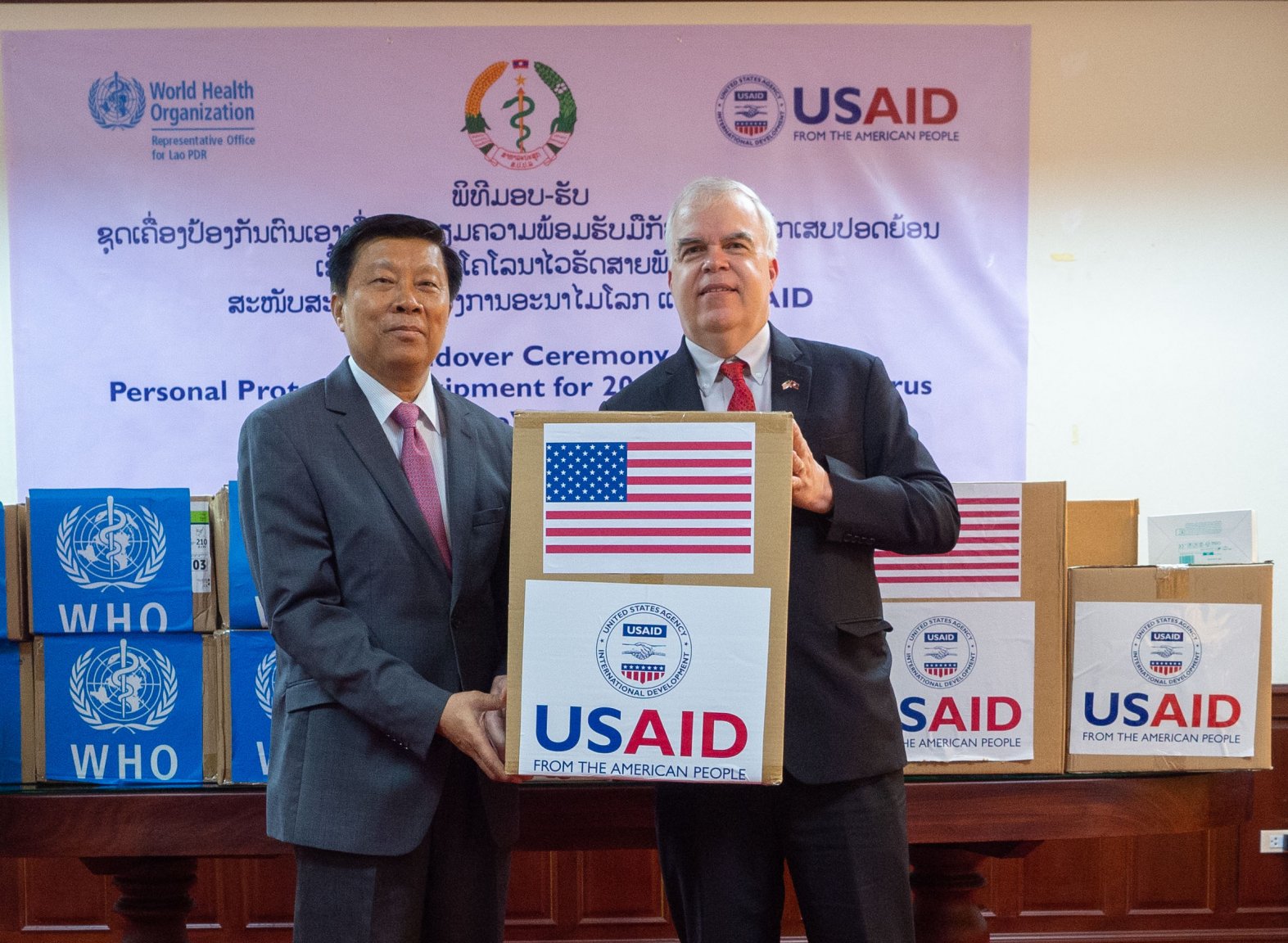
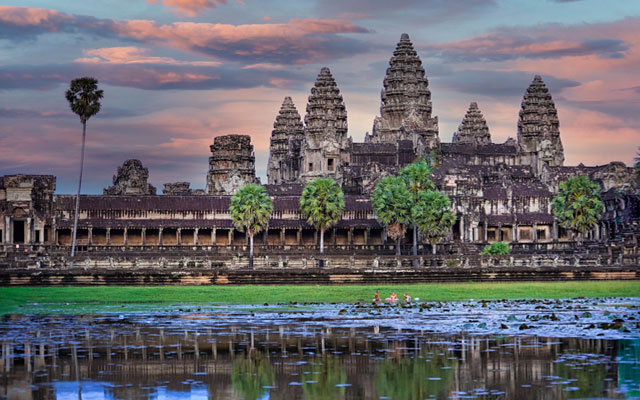
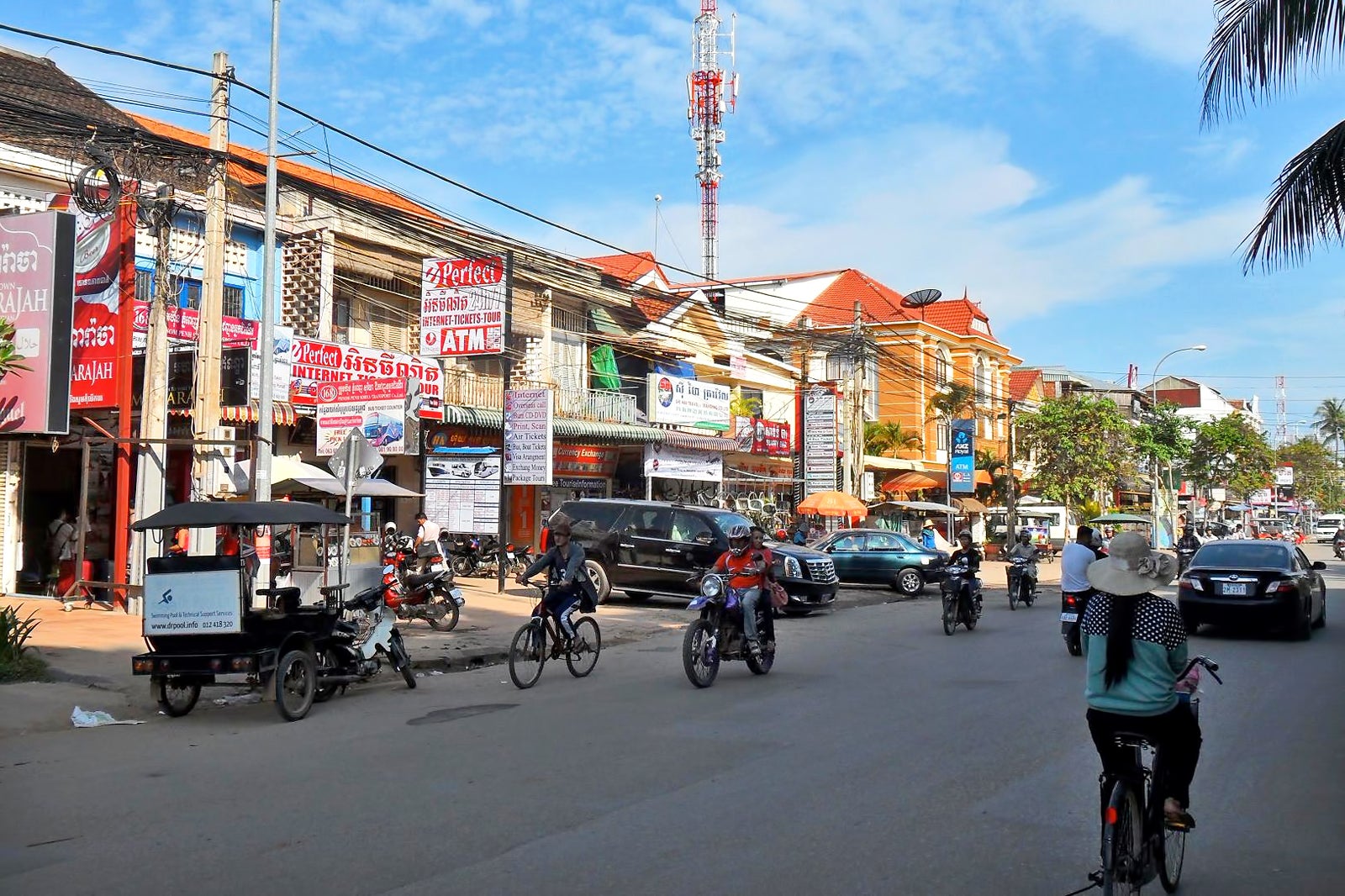

.jpg.d284677a70055871eee4ee54083c2c0e.jpg)
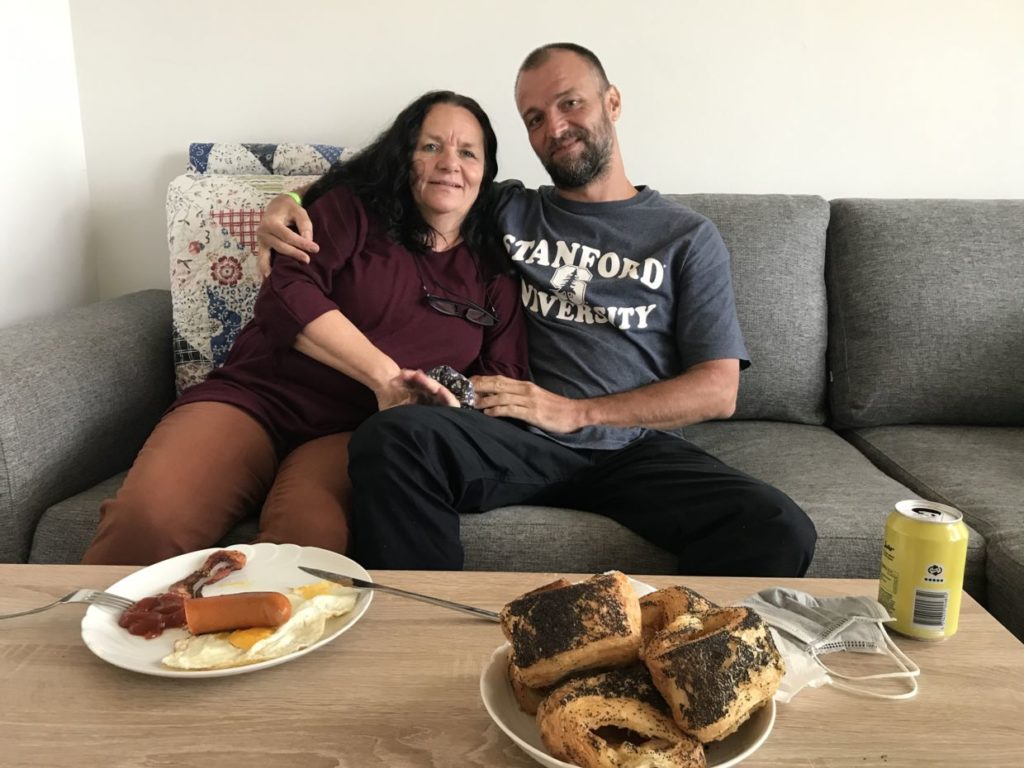
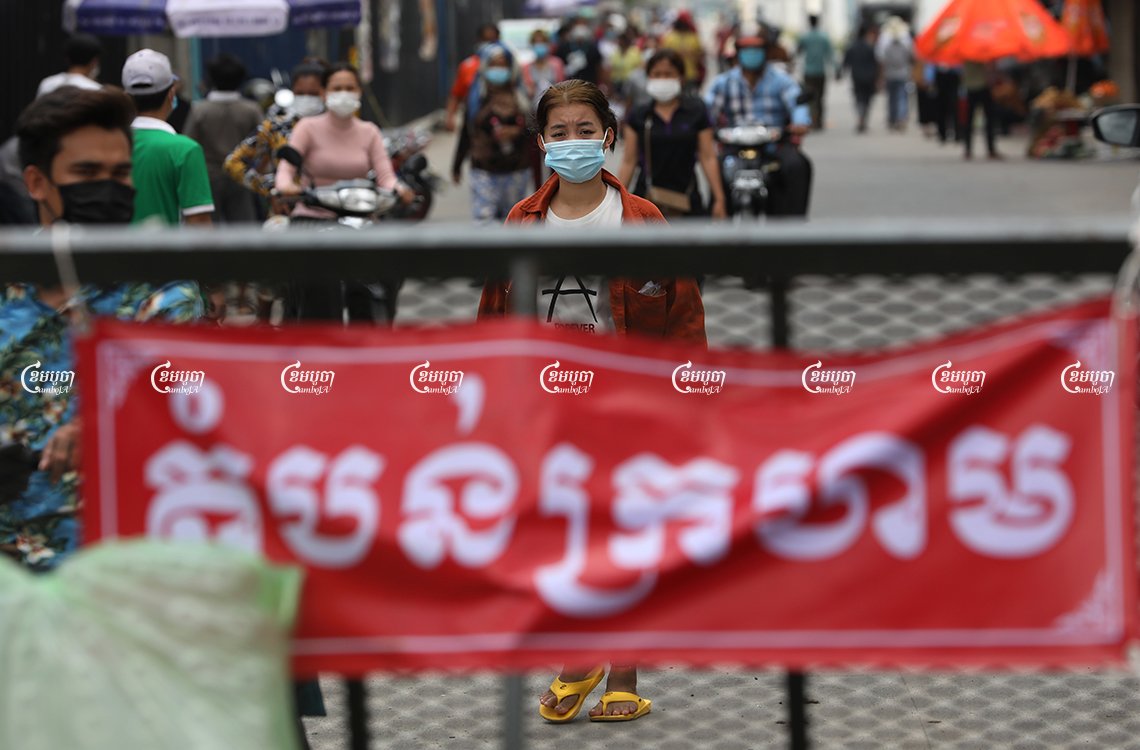
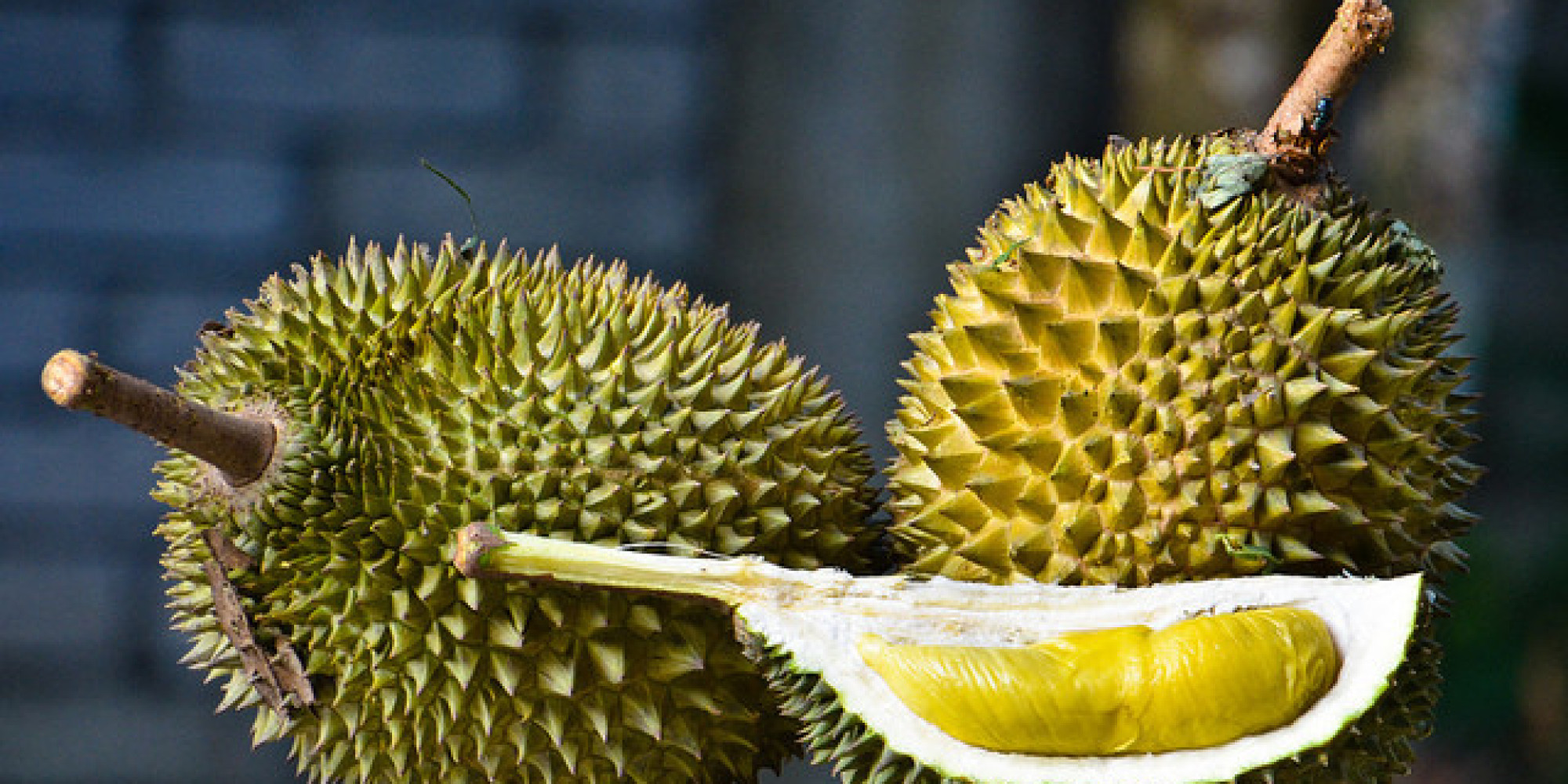
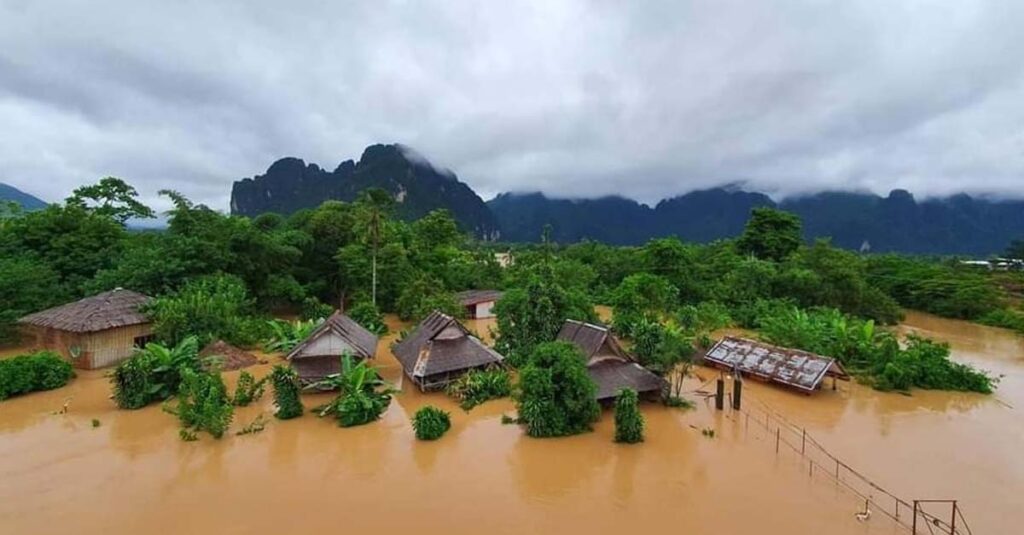
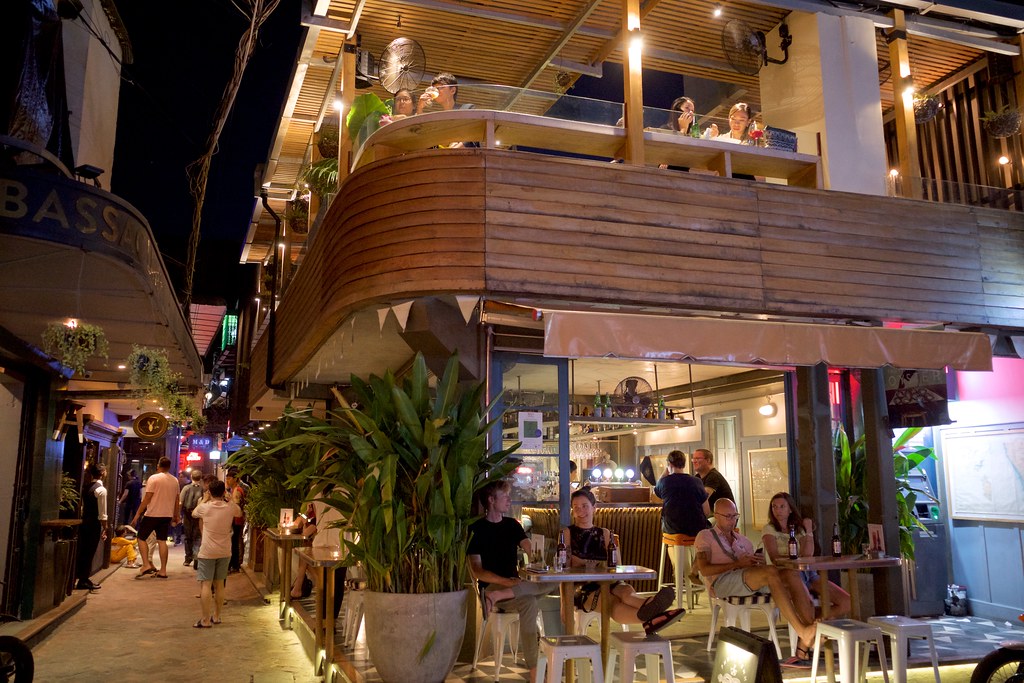

.jpg.44fb91dd9c3020830173746c70fceaad.jpg)

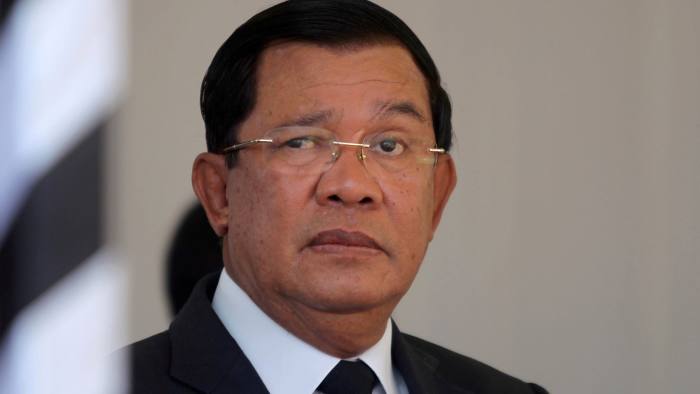
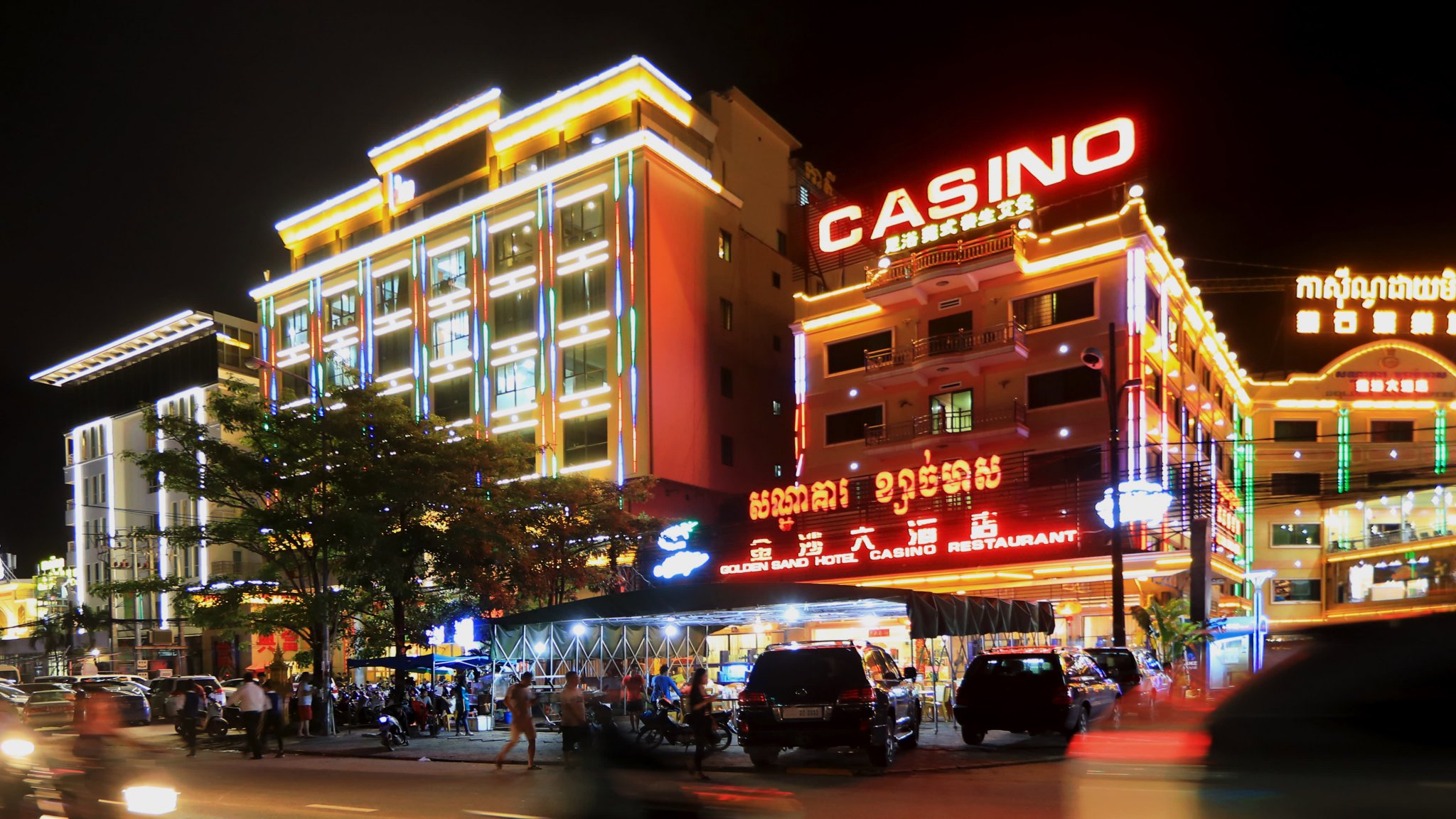

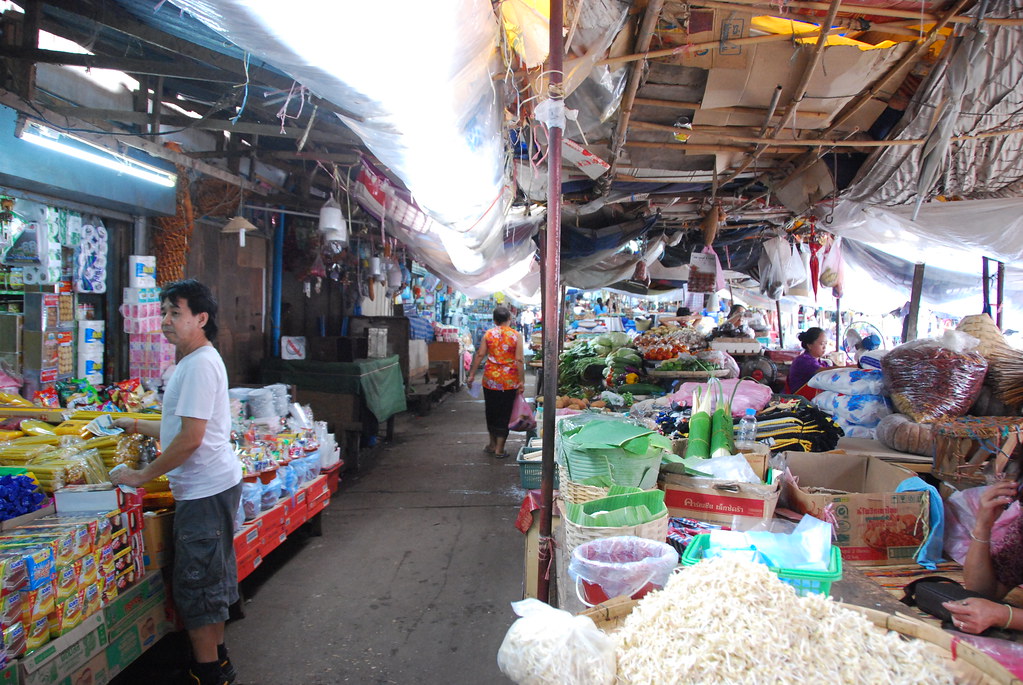
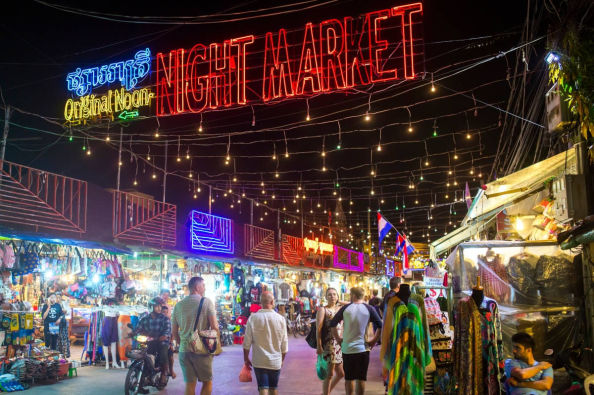
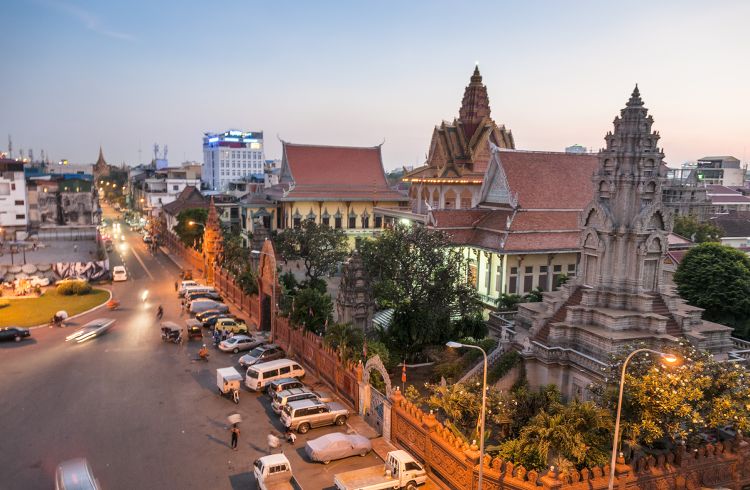
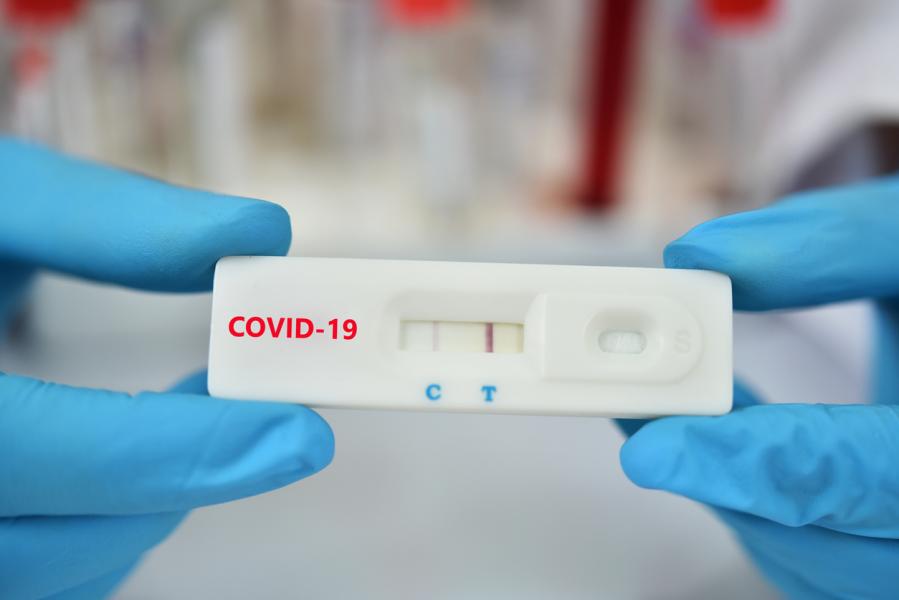
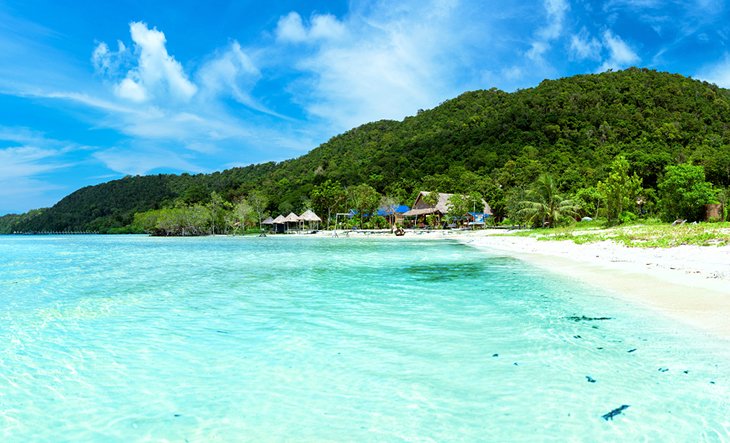

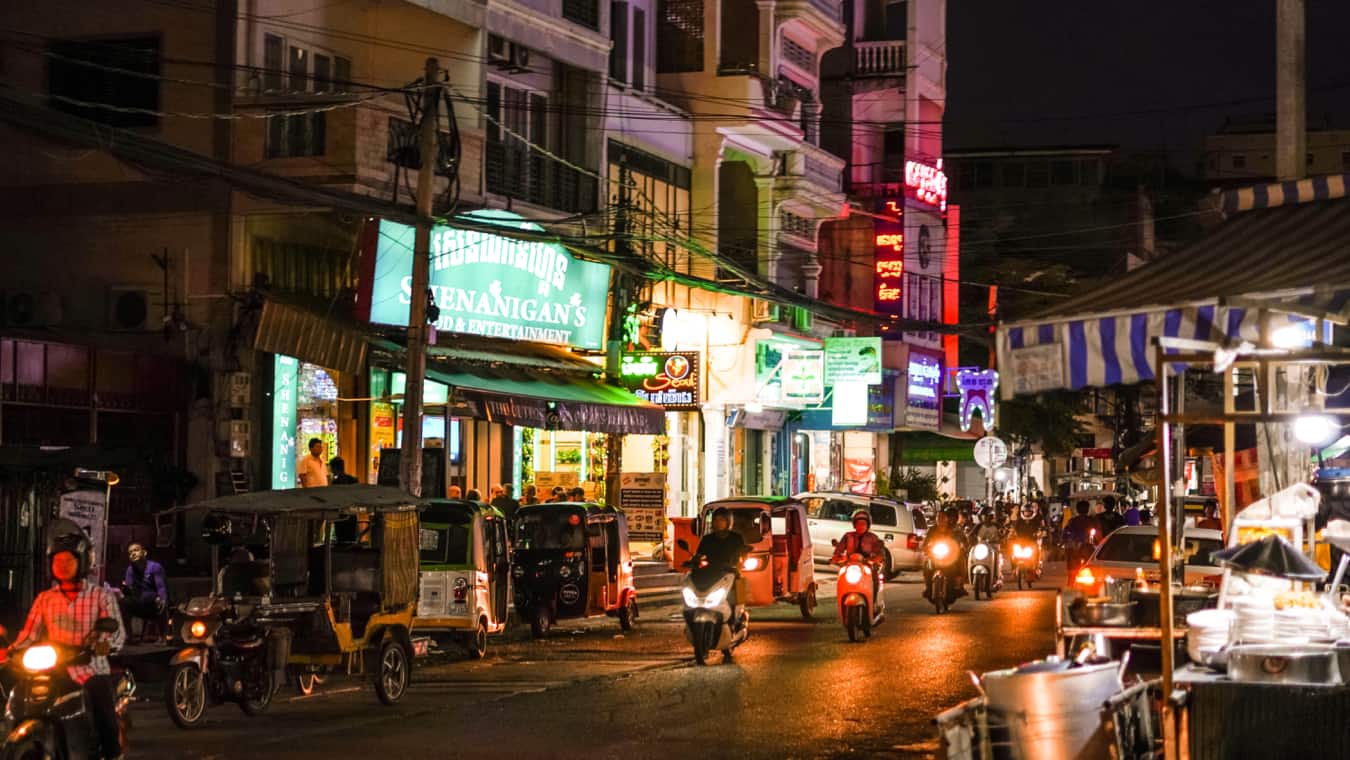
It's possible that the pandemic may be lowered to endemic status soon.
in Cambodia News
Posted
With the high vaccination rate, the Health Ministry sees light at the end of the tunnel after more than a year of fighting Covid-19 as a global pandemic, and expects that the Kingdom may proceed to an endemic state to enter the new normal.
“This is a favorable omen for the pandemic moving forward to endemic,” Ministry spokeswoman Hok Kimcheng told Khmer Times yesterday. We can put an end to the epidemic, or at the very least decrease the horror of the pandemic, if we act together - governments and citizens.”
“The fact that practically everyone has been vaccinated is a positive indicator. The immune system of those who have been vaccinated is strong enough to combat the Covid-19 virus. The virus is unavoidable, and the vaccination alone won't help, but the virus won't be able to defeat us if we take precautions,” he said.
“I want people to remember that it has been our responsibility to stay safe since the beginning of the epidemic, and it is each citizen's responsibility to protect themselves from the Covid-19 virus,” Kimcheng stated. “I hope that in these two years, people have learned enough. As a result, we can get on with our lives and live with the virus.”
“The ministry is coordinating with relevant ministries to determine the length of the tourist quarantine and how it will be implemented. We're doing everything we can to help you all adjust to the new normal,” he continued.
“Covid-19 is about us and it's waiting for the chance to get in to you,” Kep provincial governor Som Piseth told Khmer Times yesterday. Before the virus "grabs on to you," he warned, it needs to be controlled.
“The Covid-19 testing procedure has changed, but the protection measures have not. Wearing a mask, social distancing, avoiding crowded locations, and washing hands – all the three Do's and three Don'ts – will help you cope,” he stated.